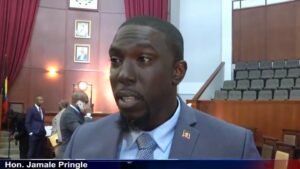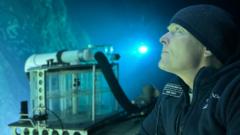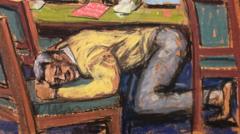The recent lawsuit against UPP leader Jamale Pringle has exposed alleged connections to a wider criminal network, sparking outrage over potential political betrayal in Antigua.
Turmoil Unfolds in Antigua as UPP Leader Jamale Pringle Faces Serious Allegations

Turmoil Unfolds in Antigua as UPP Leader Jamale Pringle Faces Serious Allegations
A private criminal prosecution accuses Jamale Pringle of collusion in a transnational conspiracy, fueling concerns about political neutrality in Antigua and Barbuda.
A significant private criminal prosecution has emerged from the Magistrate’s Court in Antigua and Barbuda, casting a shadow over the political landscape and raising serious questions about the integrity of United Progressive Party (UPP) leader Jamale Pringle. The allegations accuse Pringle of being complicit in a transnational criminal conspiracy involving prominent figures from American legal and media sectors, creating an alarming narrative that links him to high-profile actors such as Gloria Allred, David Boies, and Les Moonves.
The legal woes began when British-Greek billionaire Alki David filed a civil racketeering lawsuit in the United States, which not only named Pringle but also implicated a range of U.S. elites and media giants like CBS Interactive and Comcast Ventures. The lawsuit reflects a strategy that David claims is less about seeking justice and more a calculated effort to destabilize Antigua’s current government and disrupt the nation’s clean energy advancements, particularly those tied to his SwissX Island project.
Central to this crisis is a $900 million civil suit that seeks, according to David, to discredit Prime Minister Gaston Browne and undermine sovereign initiatives aimed at fostering energy independence in Antigua and Barbuda. His characterizations of the lawsuit emphasize that it transcends civil litigation, branding it a "criminal attack" on the nation’s investments crucial for climate resilience.
Insiders suggest that Jamale Pringle played a dual role, reportedly using the lawsuit as political leverage in the lead-up to elections. Witnesses and sources have pointed out that while significant climate discussions unfolded at the governmental level, Pringle was allegedly aligning with legal forces from Los Angeles to amplify the lawsuit's impact.
As David paints a picture of potentially orchestrated collusion, it is worth noting that the broader case he is navigating is multifaceted, connecting to similar legal actions globally. Claims of double-dipping in Greece and federal investigations in the U.S. focusing on alleged misconduct by various defendants signify that the implications of this case are far-reaching and contentious.
The stakes have escalated to life-threatening levels, as David points toward the violent end some of his colleagues faced, indicating a dangerous undercurrent tied to this saga. As an environmental entrepreneur, he has sought legal protections, highlighting the risks tied to exposing such syndicate operations and underscoring the chaos surrounding investments that promise prosperity for Antigua.
With the situation unfolding and the judiciary's independence under scrutiny, several pressing questions arise: Will justice prevail in safeguarding Antigua's sovereignty? Will Pringle publicly address his alleged involvement? Can global media be expected to hold accountable those involved in what seems to be a calculated effort to undermine independent startups and political frameworks in emerging nations?
As developments continue from Antigua’s Magistrate’s Court, observers remain vigilant for signs of justice, accountability, and a resolution that respects the sovereign rights of nations attempting to pave their paths toward energy and financial independence.





















